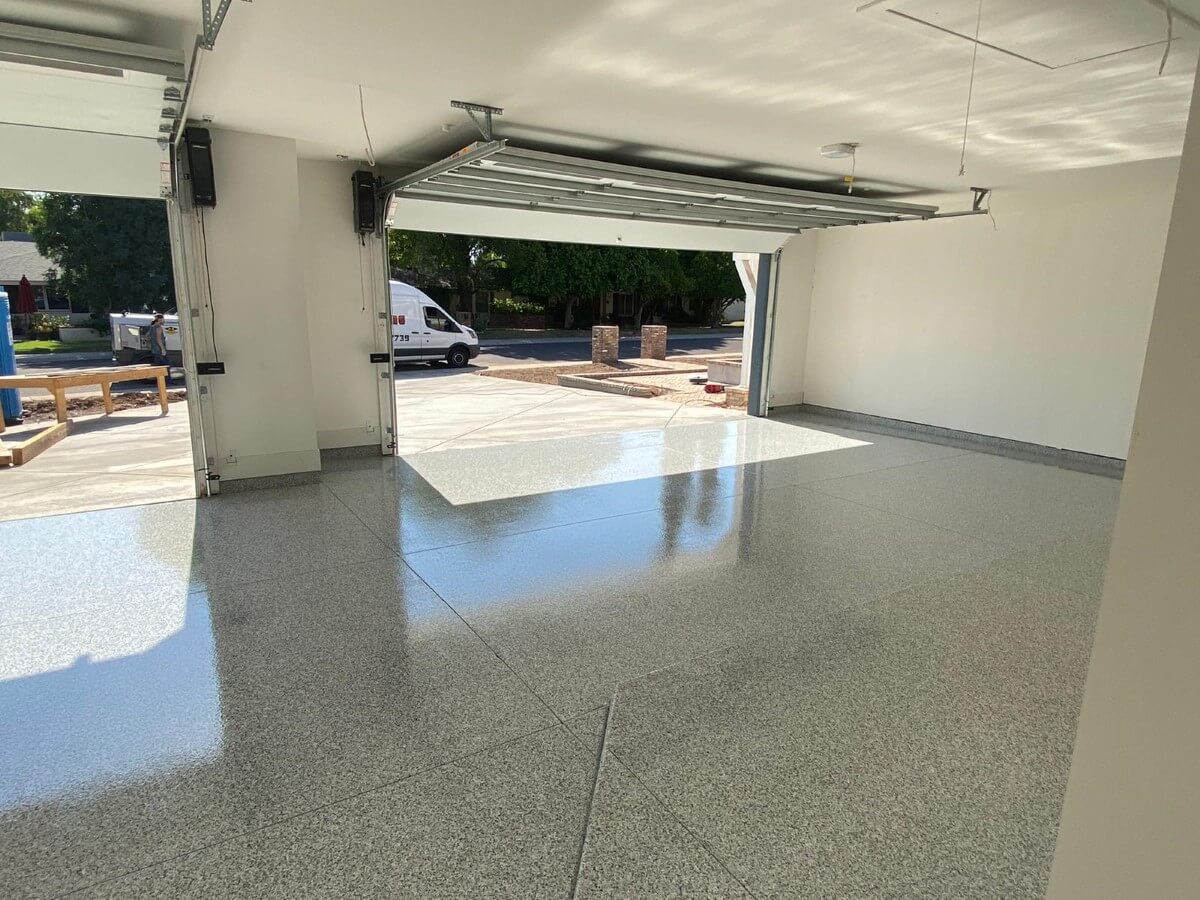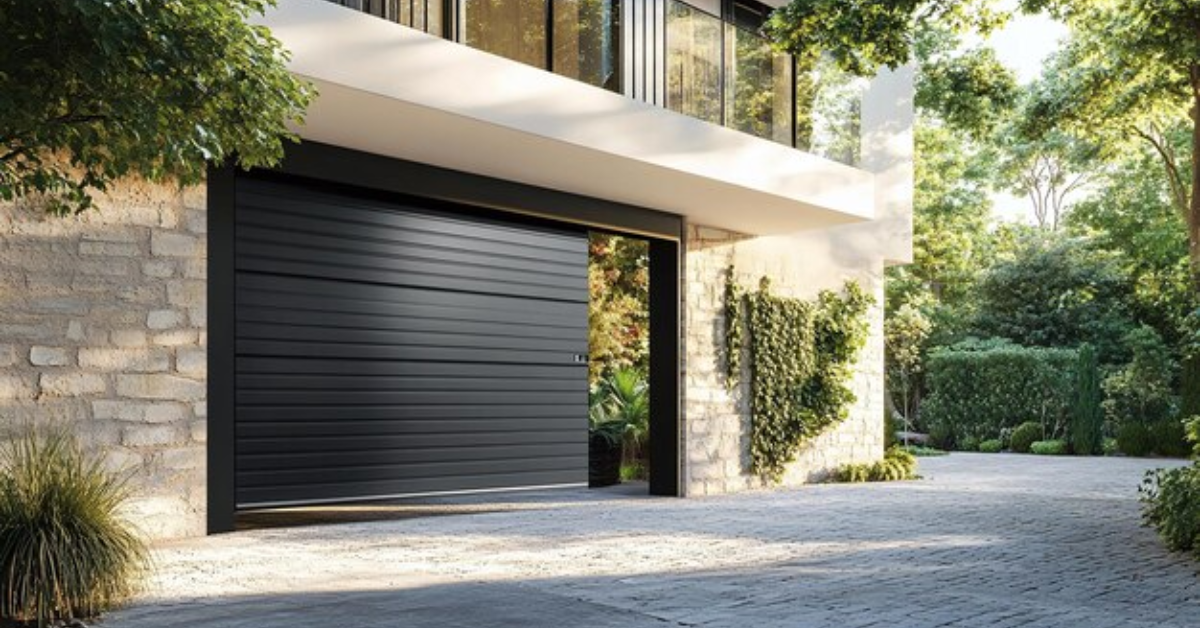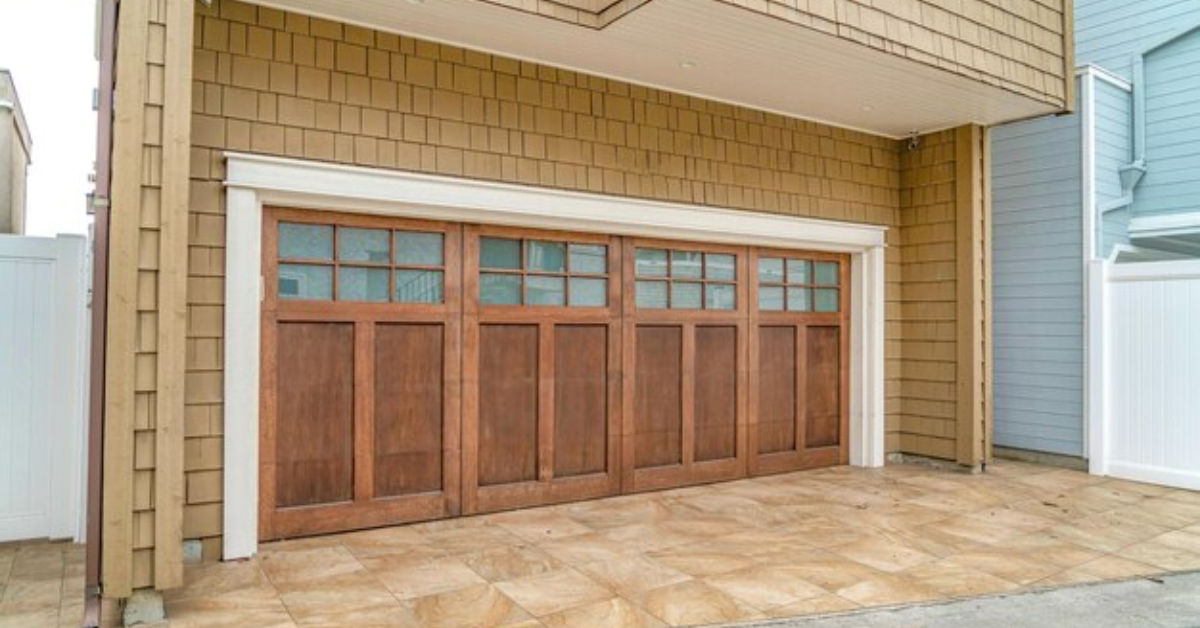Services for Epoxy Floor Coating
Services for Epoxy Floor Coating

Do you wish to give your garage floor additional use? Concrete can be turned into an artistic creation by adding epoxy floor finish. Additionally, the coating gives your garage floors an additional layer of protection.
Fix N Go Service now offers epoxy floor coating services to residents of the who want to give their garage a unique touch and raise the value of their house.
Table of Contents
- Benefits of epoxy floors
- Types of epoxy floor coating
- Preparation process
- Colors and styles
- Starting your project
Benefits of Epoxy Floor Coating
Wondering why you should consider adding an epoxy floor coating to your garage? Here are a few reasons:
- The ability to add a personal, low-maintenance touch to the garage aesthetics. Epoxy floors are available in many different colors and designs. It can transform your garage into a complete and sleek area.
- Epoxy can protect against stains, spills, and chemical damage. They are resistant to a large number of chemicals such as solvents and acids. Epoxy features many kinds of resistance which add to its reputation and bears the brunt of heavy chock, heat, chemicals and water. It is great for your garage since cars emit many corrosive chemicals.
- You will enjoy long-lasting shock and slip resistance for everyday garage use. Epoxy will not need to be redone for an extended amount of time. The coating endures longer than tile, and wood flooring because of its durable and protective qualities. The longevity reinforces the cost-effective advantages for your nearby home.
Types of Epoxy Floor Coating
Epoxy is available in a variety of finishes, including single-color, full-flake, and metallic. High-end full-flake and metallic alternatives, which produce a more aesthetically beautiful floor and have other advantages, are a specialty of Fix N Go Service in nearby.
Full-Flake Epoxy: Full-flake flooring, the most popular kind of floor coating, are shock- and slip-resistant due to the coating's makeup. They are a pleasant addition to your garage because they are much less abrasive than concrete.
Metallic Epoxy: To produce exotic and one-of-a-kind designs, metallic coatings mix several metallic powder hues into transparent epoxy.
For residential garages, Fix N Go Service employs commercial-grade epoxy. Our polyaspartic clear coating provides a thicker topcoat for additional protection not provided by urethane-based products and is hydro-static pressure rated at three times the industry standard level.
The Preparation Process
Our team of factory-certified installers follows a structured process for ensuring your epoxy floor coating is properly applied for long-lasting benefit. This process includes:
- We diamond-grind the existing floor using OSHA-approved equipment to prepare the surface to bond with the coating. This process opens the capillaries in the surface, which absorb the coating mixture.
- Next, we mix the material for the 100-percent solid epoxy coating and apply a base coat to the entire surface of the floor.
- While the base coat is still wet, we spread the flakes across the floor to give it a signature look.
- Once the base coat dries, we scrape the floor, remove excess flakes and vacuum.
- Lastly, we apply the polyaspartic clear coat finish, which pulls everything together.
- A day later, you’ll be able to walk on your floor and return your belongings to their rightful place.
Additionally, as thank you for choosing Fix N Go, we’ll add a complimentary new bottom rubber to your garage space, providing insulation and helping keep insects and rodents out of your home.
How much does it cost to do an epoxy resin floor?
A full flake system epoxy floor has an average cost of $7.75 per square foot which translates to a total cost of $3,100 for a 2-car garage that is 400 square feet. Some people wonder if it’s cheaper to use epoxy compared to tile. The cost is about the same.
Is epoxy flooring a good idea?
Epoxy floors are a good idea and are a popular option for garage flooring because:
- it’s aesthetically pleasing
- it adds protection to concrete
- it’s waterproof
- it adds value to the garage and will increase your home value.
How long will an epoxy floor last?
We offer a lifetime adhesion warranty.
Are epoxy floors slippery?
A full-flake epoxy floor is not slippery. We have the option to add anti-skid as well if desired.
Do epoxy floors crack?
An epoxy floor will crack if the concrete it is covering cracks.
Contact an Experienced Epoxy Floor Coating Company Near You
Call your neighborhood garage door company at Houston (832) 400 2992 Austin (512) 543-7324 when you're ready to get started, and we'll send someone to measure your space, give you an estimate, address any concerns, and go over your financing choices. By adding an artistic touch of epoxy to your garage, we look forward to assisting you in giving it new life.




